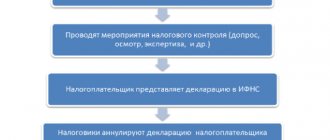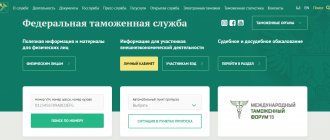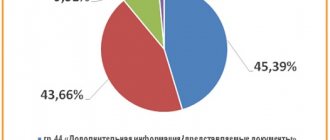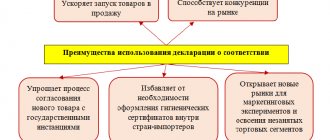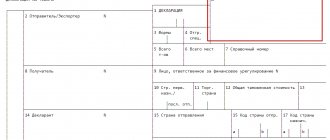What it is
In order to organize reliable postal communications around the world, the Universal Postal Union, or GPU, was created, of which Russia is a member. The UPU Charter, adopted in Vienna in 1964, established that the union is designed to stimulate the sustainable development of universal postal services to ensure high-quality and effective communications between the inhabitants of the planet.
Article 22 of the Charter approves a special document - the Regulations on Written Post, in which the declaration CN22 and CN23 are mentioned (samples are given in the Appendix to the Regulations). These are documents that are filled out when sending international parcels, parcels and small packages. CN22 is issued when sending small packages and parcels with a value of less than 300 SDR (an artificial means of payment issued by the IMF, used exclusively in non-cash form). The rate of this means of payment, by analogy with currencies, is set daily by the International Monetary Fund. In practice, the second form, CN23, is much more often used; it is used at the request of the sender and at a higher cost of shipments.
Instructions for filling out the declaration for the Qwintry Economy method, EMS USPS
This notice is only for items shipped via USPS and other government mail services:
- Use English only. That is, you don’t need to write the word “skirt” with the word “yubka”, it’s better to write “skirt”.
- Use simplified grammar and punctuation. You shouldn’t write T-shirts for baby, it’s better to write Babys tshirts.
- Name things correctly. If you are declaring trousers, write pants, not pant. Shoes are usually sent in pairs, and each pair is counted as an item, so you should write shoes, not shoe (unless you decide to send one shoe).
- The names of things should be simple and monosyllabic. If you have three children's t-shirts of different prices, just write Kids tshirts. Do not copy phrases from the invoice sent by the store. Customs and stores have different rules for describing goods.
- Remember that the same names in different parcels will be combined into one , so write their names in the same way. As a result, all Babys tshirts should be written exactly like this - without unnecessary spaces or spelling variations.
- Combine things into groups. If you have five different men's sweaters worth 45, 155, 100, 34 and 66 dollars, then you can add them to the declaration as follows. Name: Mens sweaters. Quantity: 5. Cost: 400. Typically, a commercial batch starts from seven or more identical items, so always break things down into small groups of up to five to seven items.
- Use different names when describing things . For example, when describing children's things, you can use the words Kids, Boys, Girls, Babies, Toddlers (child from 2 to 5 years old).
- Edit the declaration after consolidating the parcels so that you have a maximum of 10-12 items left. The maximum permissible number of positions is no more than 50, but such a number may already raise questions from the customs authorities.
- Indicate only the cost of the product, that is, the price for which you bought it. The declaration does not indicate the cost of shipping the goods from the store to Banderolka or from Banderolka to you.
- Mention the presence of a battery installed if you are shipping any electronic devices that have one. When adding a device to the declaration, add “with battery installed”. Example: Mobile phone with battery installed.
- Remember about the parcel weight limit that exists with Parcel. It is 40 pounds and is based on US Postal Service guidelines. Cardboard boxes generally cannot support more weight.
Information about what Banderolka does not work with can be read here.
Information about prohibitions and restrictions of the Customs Service of the Russian Federation.
Remember that the customs limit for different countries is different amounts.
- For Russia: 200 euros per parcel per person;
- For Kazakhstan: 200 euros per parcel per person;
- For Ukraine: 100 euros for one parcel or parcels that clear customs on the same day;
- For Belarus: 22 euros for one parcel and 200 euros in total for parcels that clear customs within one calendar month;
- For the Baltic countries: 30 euros;
- For other countries it may be even less. Please check the limit for your country before completing your declaration.
Why is a declaration needed?
The form is filled out to ensure smooth delivery of the above-mentioned international shipments. When sending parcels within the Eurasian Economic Union, filling out such a document is not required. The EAEU includes:
- Russian Federation;
- Kazakhstan;
- Armenia;
- Belarus;
- Kyrgyzstan.
Let us dwell in detail on the question of how to fill out a customs declaration for a CN23 parcel, although the easiest way to do this is using a special service of the Russian Post, where the program will independently generate a form based on the data provided by the user, the sender.
1. Policy for use and interaction with the service.
1.1. When using the “RF Postal Form” (hereinafter referred to as “PBRF”, “Service”), located on the Internet at https://pbrf.ru, the conditions set out below come into force automatically.
1.2. Terms are subject to change without any specific notice. The new edition comes into force from the moment it is posted on the Internet.
1.3. By starting to use the Service, the User is deemed to have accepted the terms in full. If the User disagrees with any of the provisions, including taking into account any changes made without notification, the User does not have the right to use the Service.
1.4. The User is independently responsible to third parties for his actions related to the use of the Service, including if such actions lead to a violation of the rights and legitimate interests of third parties, as well as for compliance with the law when using the Service.
1.5. To use the expanded functionality of the Service, the User is required to go through the registration procedure. When providing incorrect information, when using an invalid email address, during mass automatic registration of accounts, when re-registering an account in order to use the free period of a paid tariff, the PBRF administration has the right, at its discretion, to block or delete the User’s account and refuse to use the Service.
1.6. When registering in the Service, the User sets a password. The user is solely responsible for the security (resistance to guessing) of the password he has chosen, and also independently ensures the confidentiality of his password. The User is solely responsible for all actions (as well as their consequences) within or using the Service under the User’s account, including cases of voluntary transfer by the User of data to access the User’s account to third parties under any conditions (including under contracts or agreements) . In this case, all actions within or using the Service under the User’s account are considered to be carried out by the User himself.
1.7. After registering in the Service, the User is connected to a free period of the paid tariff (trial), which expands the functionality of the service: advertising on the second page is removed, access to templates for saving data about shipments is available, and the ability to connect to the Service via API is added. The validity period of the free period and the connected tariff are indicated in the User’s personal account and are set privately by the Service administration. Current information on tariffs and their expanded functionality is available at: https://pbrf.ru/tariffs/select-tariff
1.8. At the end of the free period, the User’s tariff automatically switches to the “Free” category, and the functionality of the paid tariff is disabled. At the same time, money is not debited from the user for using the free period.
1.9. The user becomes a Client of the Service if, at the end of the free period, he decides to pay any tariff available at the link: https://pbrf.ru/tariffs/select-tariff
2. Refund Policy.
2.1. PBRF guarantees a full refund for non-use of the Service upon the Client’s first request. When paying thirty (30) days in advance and initiating a refund on the first (1) day, the Client receives the paid amount excluding the payment system commission in full. In other cases, the used tariff days are recalculated and deducted from the refund amount.
2.2. To initiate a refund for using paid functions of the Service, you must contact technical support at [email protected] , indicating “Refund” as the subject of the letter, and in the body the username used in the Service, the current tariff, the amount payment and payment date.
2.3. All received applications are reviewed within 24 hours. Refunds are guaranteed to be made within 30 calendar days after a positive decision is made.
2.4. Refunds are made by transferring the required amount to the Yandex.Money e-wallet, WebMoney, or to a VISA/MASTERCARD card in rubles. If an agreement is reached, it is permissible to use other methods of returning funds that are convenient for the Client.
2.5. The fee for refunding funds is borne by the Service. The duration of the transaction depends on the chosen return method and ranges from 1 to 5 business days.
3. Privacy Policy
3.1. When registering in the Service, the User provides the following information: last name, first name, email address, mobile phone number (optional), password to access the Service (optional), promotional code (optional).
3.2. By providing his personal data during authorization/registration in the Service, the User agrees to their processing for an indefinite period by the Service administration.
3.3. When processing the personal data of the User and the Client, PBRF is guided by the Federal Law “On Personal Data” and local regulatory documents.
3.4. Only the Client has the right to receive information regarding the processing of his personal data (including about the methods and purposes of processing, about persons who have access to his personal data or to whom personal data may be disclosed on the basis of federal law).
3.5. Use of information provided by Clients and Users and received by PBRF.
3.5.1. PBRF uses the data provided by the User during the entire period of the User’s registration in the Service for the following purposes:
- for User registration/authorization;
- to process requests related to the functioning of the PBRF and fulfill its obligations to the User;
- to notify the User about changes in the Service;
- to transfer the User to the status of a Client.
3.5.2. PBRF uses the data provided by the Client during the entire period of the Client’s registration in the Service for the following purposes:
- for registration/authorization of the Client;
- to process requests related to the functioning of the PBRF and fulfill its obligations to the Client;
- to notify the Client about changes in the Service;
- to carry out activities to promote goods and services of the PBRF;
- to analyze the Client’s purchasing characteristics and provide personal recommendations;
- to improve the level of quality and ease of interaction with the Service;
3.6. Providing and transmitting information.
3.6.2. It is not considered a violation for PBRF to provide information to agents and third parties acting on the basis of an agreement with PBRF to fulfill obligations to the Client and User and only within the framework of agreements.
3.6.3. The transfer of information in accordance with reasonable and applicable requirements of the legislation of the Russian Federation is not considered a violation of obligations.
3.6.4. PBRF has the right to use “cookies” technology. Cookies do not contain confidential information and are not transferred to third parties.
3.6.5. PBRF collects information and information about the IP address of the User and PBRF Client only within the framework of the Yandex.Metrica and Google Analytics systems in order to improve the internal characteristics of the Service and general ranking indicators in search engines.
3.6.6. When processing personal data, the PBRF takes necessary and sufficient organizational and technical measures to protect personal data from unauthorized access to it, as well as from other unlawful actions in relation to personal data.
Filling rules
In the CN 22 customs declaration, eight fields are filled in, in each of which the following information is indicated:
- They describe in detail the items being sent, specifying their quantity and unit of measurement (for example, two men's cotton shirts). This especially applies to goods subject to quarantine (products of animal and plant origin, food products, etc.). You should also indicate the category of the parcel (gift, documents, commercial sample, etc.).
- All of each item in kilograms.
- Their cost.
- TN VED code (Commodity Nomenclature for Foreign Economic Activity). This, as well as the fifth paragraph, is filled out only for commercial shipments.
- The country of origin of the goods (for example, the country where they were produced, manufactured or completed). To speed up customs clearance, it is recommended to attach the goods invoice to the outside of the shipment.
- Total weight of the shipment.
- Total cost of the parcel. Please specify the currency used (for example, “CHF” for Swiss francs).
- Signature and date.
Declarations are filled out in Latin letters and attached to postal items either outside or inside. If a document is placed inside the parcel or is difficult to read, a label indicating this fact is affixed to the outside of the parcel.
Attention! To speed up the time it takes to clear customs, fill out the declaration in the language accepted in the country of destination.
Do not forget that when sending parcels and express items for export, customs duties and other payments may arise in the recipient’s country in accordance with its legislation. These charges will be imposed on the recipient. Russian Post is not responsible for consultations and information about the current legislation of recipient countries.
You can view both forms of declaration here, on the official website of the Russian Customs.
Subtleties of customs clearance of parcels from abroad
If you often order a lot abroad (for example, from China - from AliExpress), then a batch of 4-5 or more pieces at a time can be considered commercial. Unfortunately, it is not stated anywhere what the minimum number of parcels can be considered commercial - this is at the discretion of the customs inspector. Arranging such a party yourself will be quite a big problem for those who don’t know. As a result, we advise you to contact a customs broker - we will register the shipment in our name as a legal entity, and then transfer it to you.
However, you can try to prove at customs that the goods being sent are not a commercial consignment: try to collect written evidence of who and why needed such a large number of similar things (for example, relatives, friends, etc.) one by one. Then the parcel will be cleared through customs for an individual without additional costs.




